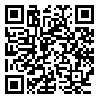BibTeX | RIS | EndNote | Medlars | ProCite | Reference Manager | RefWorks
Send citation to:
URL: http://jdm.tums.ac.ir/article-1-158-en.html
Gingival overgrowth is a drug-associated side effect occurs in pediatric patients. Phenytoin, cyclosporine, calcium channel blockers, and amphetamine are primary drugs that can cause gingival enlargement in children. Pediatric patients are more prone to drug-associated gingival overgrowth rather than adults. Gingival overgrowth may cause functional, phonetic, and nutritional difficulties, and more importantly, may affect the psycho-social development, self-esteem, and quality of life in children. However, the researches about this issue are rare. This Part I paper provides an analysis of pediatric systemic disease and corresponding prescribed medications for selected physical and mental health conditions. This paper describes the morbidity and risk for children related to gingival overgrowth and proposes a framework for action that will be more completely described in a part II paper on this topic.
| Rights and Permissions | |
 |
This work is licensed under a Creative Commons Attribution-NonCommercial 4.0 International License. |




